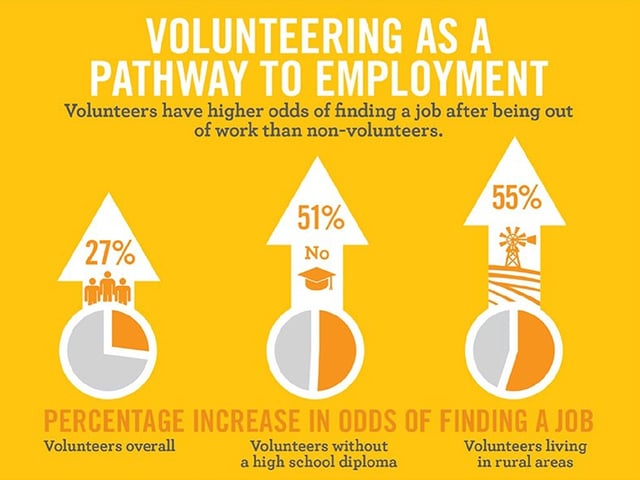It’s a perennial question: “What should I put on my resume?” There are plenty of articles and how-to videos offering advice on what a resume should say and how it should look. But, when looking for employment, it's important to stay focused on your goals in sequence. Here is what I mean: You are not writing a resume to get a job; you are writing a resume to get an interview.
Here are 6 best practices for writing a winning resume:
1. Create a Personal Brand When Writing Your Resume
When writing your resume, don’t list your strengths and expect a hiring manager to take notice. Rather, make every effort to tell a story that builds a personal brand. What, you might ask, constitutes a “personal brand?” For our purposes, your brand will be a synthesis of your professional capabilities and the positive aspects of your personality.
Let's say you’re a talented public speaker. Instead of just listing the speaking engagements in which you have participated, give some indication of your enthusiasm for speaking and the impact your rhetorical talents had on your audience.
Did you “present information to colleagues in ____,” or did you “interpret and explain pivotal data and statistics for professionals in the ____ industry?” One phrasing sounds like a description of a slideshow, and the other leaves an impression of personal expertise and agency.
The key here is to connect your experiences with real-life successes and tell potential employers why they should care. When possible, include observable and quantifiable outcomes in your descriptions. If an employer can look at your resume and see evidence of your strengths, it will put you at a marked advantage.
Finally, do not lie. Not only is lying unethical, but it is far too easy to sniff out a tall tale these days.
2. Use The Right Keywords
Working in a recruiting office, I bear daily witness to how sorely neglected keywords can be.
The bottom line is that recruiters in my office sort and search through untold heaps of resumes, and they do so by using applicant tracking systems, i.e., robots: unconscious, hyper-literal, ruthlessly precise robots. If your resume doesn’t contain the exact keywords that map onto the job you’re after, there’s basically no chance you’ll land an interview.
How can you access the occult words and phrases that open a portal to the interview? Start with the job posting. In almost every case, the employer will include specific skills and qualifications you must possess in order to be considered.
Copy their language directly. Touch up your resume to incorporate their verbiage, then touch it up again for the next job. Does this seem tedious? Yes. Seemingly unnecessary? Probably. But these are the rules of the game. You can be confident that whoever lands the job will have adhered to them.
3. Tailor Your Resume to Each Potential Employer
The easy path is tempting, but as efficient as it would be to crank out a generic resume and fire it off to everyone who might be interested, this tactic is not a winning one. You will almost certainly get overlooked for missing keywords (see above). You will also blend right in with the nameless mass of resume gamblers who their job searches into something similar to a spam campaign.
The rationale here is pretty straightforward: Every job is different, so don’t make every resume the same. The screening technologies are too good to countenance blind optimism when it comes to hoping for an interview.
Take the time to tweak and tailor your resume into a customized document that aligns with each job description. Absent this consideration, you will be wasting the time you thought you were saving.
4. Only Relevant Job Experiences, Please
Many people write their resumes under the misguided assumption that they should cram as many professional experiences as possible onto the two pages of real estate offered by their resume. This is somewhat understandable. They want to impress a potential employer and, thinking quantitatively, more must be better, right?
This approach is actually the direct opposite of what should be done. When listing professional experience, you should prioritize quality and relevance over quantity. There are a few reasons for this, but the first is simple legibility. A concise and clean resume is a much more eye-catching and inviting document than one with a single-spaced block of micro-fonted text.
That being said, you do need to list the most current and relevant jobs on your resume. A good rule of thumb is that any job worked before the last 10-15 years is unlikely to be of interest to anyone but yourself.
5. Grammer Matters
This one doesn't require too much explanation. Grammarly and programs like it are so widely available that having an ungrammatical resume impresses as sheer laziness. While it is true that most people cannot recite exact grammatical or usage rules, most people notice when a sentence doesn't make sense. Since the rules of grammar are essentially the accepted logic of the English language, failing to abide by them can result in nonsense. In a text, there are no nonverbal cues to bridge the gap between what you mean and what you say. So, whatever your creative writing teacher told you in high school, writing like you speak is not a good resume decision.
6. Begin Narratives With Strong, Descriptive Action Verbs
One of the biggest risks you run when submitting a resume is sounding bland, being forgettable. In order to avoid this, you need attention grabbers. Describing your accomplishments with strong action verbs such as organized, managed, directed, and etc., conveys the active role you played in your stated accomplishments.
The key here is emphasizing your agency. You did something; you made it happen. Avoid language suggesting that you were merely “responsible” for some outcome or “contributed” to it. These words are vague and reek of passivity. Choosing strong action verbs will also help build your personal brand. Think: You are the kind of person who…launched an initiative, spearheaded an campaign, organized an audit, etc.
Final Thoughts
When you sit down to write your resume, carefully consider what you have to offer an employer. Your resume is the base ingredient of your personal brand–a first impression that should not be improvised. It is a tool to place you in an employable position.
If you find yourself at a loss for ways to improve a resume, don’t be afraid to get professional help. There are people whose entire livelihood depends on creating top-notch resumes. Key details that most people would overlook will stand out to such a person.












.png?width=696&name=IS%20A%20COVER%20LETTER%20IMPORTANT_%20(1).png)



